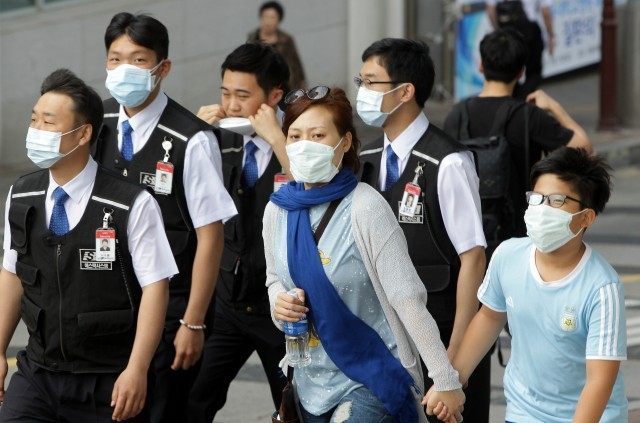South Korea posted the worst quarterly economic growth figures in six years this week, having been hit by the spread of the deadly Middle East Respiratory Syndrome (MERS). Weak exports, severe drought and reduced tourism have all added to the east Asian country’s drop in gross domestic product growth to 0.3 per cent in the last three months, compared to 0.8 per cent in the first three months of the year.
The International Business Times reports that since 20 May, when South Korea first reported incidents of MERS, 36 people have died and 186 have been infected. According to Reuters the outbreak also took it’s toll on the country’s tourism sector with thousands of cancelled visits representing a drop of 40 per cent drop from May to June. It also hit consumer spending as people remained indoors to keep safe.
The government and Bank of Korea (BOK) both report that tourist numbers are slowly growing again. Nevertheless the Governor of the Bank of Korea (BOK), Lee Ju Yeol, said that the impact of the deadly virus on the $1.4 trillion economy will be felt until at least August even though no new MERS cases have been recorded since 4 July. He added that the turnaround would take place only after companies and consumers start spending again.
“Consumption should rebound this quarter as people shake off fears on MERS, but this is just a base effect and not a meaningful improvement,” An Ki Tae, a Seoul-based economist at NH Investment & Securities Co., told Bloomberg, adding: “I don’t think the BOK will respond to slow growth with another rate cut as inflation is gradually starting to pickup.”
In order to boost the economy BOK Governor Lee Ju Yeol and his policy board have already cut key interest rates four times since last August. International Business Times reports that with rates now down to 1.5 per cent private debt has grown – bank lending to households increased by $7 billion last month prompting South Korea’s financial regulator to say it will put forward stricter credit rules for loan applicants limiting the risks of excess household debt.
Reuters reported that the South Korean government is also considering pumping in an extra $10 billion to kickstart the economy even though it still grew 2.2 per cent in the June quarter from a year earlier, rather than the 2.3 per cent economists had forecasted.
In recent times Bloomberg reported the South Korean President Park Geun Hye said the Greek debt crisis would hurt the domestic economy for “some time.” In addition, Finance Minister Choi Kyung Hwan reiterated the warnings of falling domestic demand as well as other risks such as rising U.S. interest rates and cheap oil. BOK also predicts more economic pain linked to the domestic drought and potential risks from China’s stocks crash.
Although revised down, the South Korean economy may still grow by 2.8 per cent this year, comparable to the British and American economies and rather more than the European Union taken as a whole. This remains far below the average growth the economy enjoyed before the 2009 global recession.

COMMENTS
Please let us know if you're having issues with commenting.